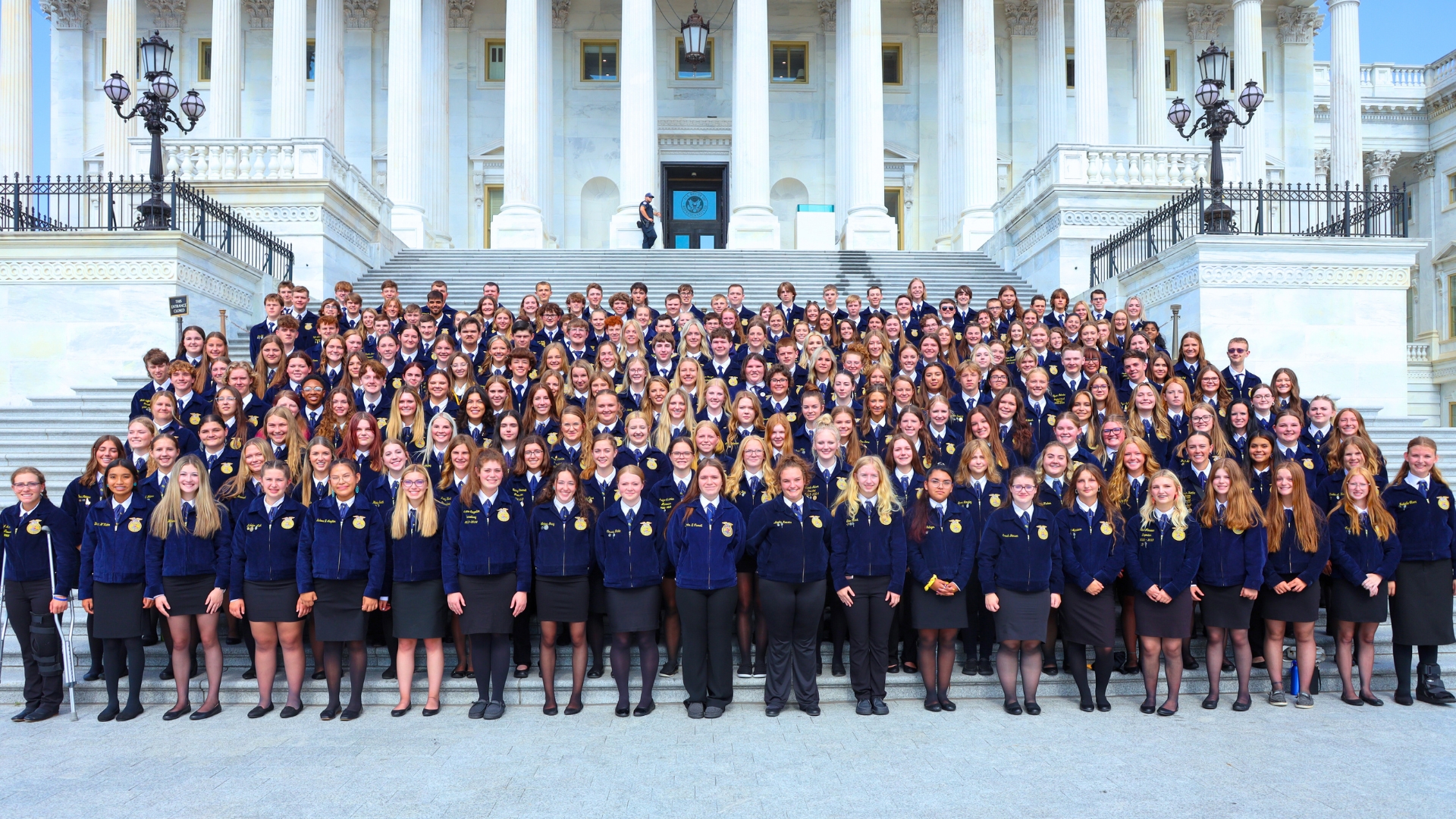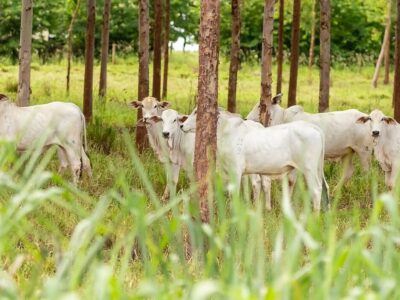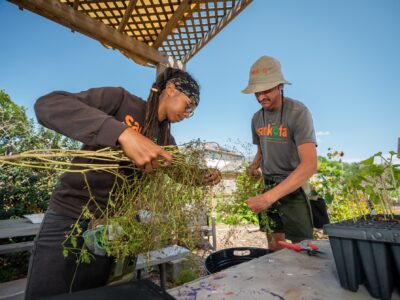With more than 9,000 local chapters in all 50 states, the nonprofit Future Farmers of America is an extracurricular student organization inspiring the next leaders in agriculture. Colloquially known as the FFA, the historically popular and still-growing organization has more than 945,000 student members and more than 8 million alumni members, according to its website. With the average age of the American farmer nearing 60, FFA is playing a critical role in teaching farming methods to America’s youth while honoring the legacy of older farm workers.
This year, Corunna High School student Amara Jackson was elected as the national FFA president, marking the end of a 70-year drought since the president has been from Michigan.
The Wolverine State is proud that its office puts a spotlight on its important farming industry.
Jackson is one of six national officers elected by FFA members and will travel more than 100,000 miles during her tenure, visiting other schools, meeting alumni, and attending conventions. Additionally, she will serve on the National FFA Board of Directors, where she will meet with top leaders in agriculture, food, and natural resources.
Photo Courtesy National FFA Organization
“With the strong agricultural heritage we have in Michigan, our state is well represented nationally by Amara and her Michigan FFA colleagues,” Dr. Michael Rice, state superintendent, said in a press release.
Students along the Eastern Seaboard are also learning about modern farming techniques from FFA. The Pennsylvania FFA Midwinter Convention brought nearly 10,000 members and guests to the New Holland Arena this past January. Farming is still vital to the Lancaster County area, contributing $1.5 billion to the county’s gross domestic product.
Photo Courtesy National FFA Organization
“As farms get bigger and farmers get a little older, it’d be easier to have automation to help assist them,” Caleb Miller, a Pennsylvania Farm Show Junior Committee member, said to Lancaster Online.
Miller’s family farm — 140 acres in Elizabethtown with 70 milking cows — has been in the family for generations. And he’s just one of the thousands of students who want to make sure his family’s past translates to the future, not only in terms of a positive economic impact for the community, region, and country but for the health of the land and the people who eat the food it nurtures.
Photo Courtesy National FFA Organization
In the FFA, students are taught not only the latest sustainable growing methods but a wide range of important topics, such as how government and agriculture work together.
Many students visit state capitals each year to learn about farming issues in their state.
“[When visiting the state capital] students were responsible for introduc[ing] themselves and their chapter, speak[ing] with the legislators about what they do as FFA members, talk[ing] about important agricultural issues that our state faces, and answering any questions that the legislators had for them, Elizabeth Bucklen, a Skyline High School FFA advisor, told The Northern Virginia Daily. “Our students were faced with a new level of professionalism that the majority of them have never had the chance of displaying before.”
Photo Courtesy National FFA Organization
As FFA continues to grow in popularity across the country, the organization maintains a heavy focus on leadership and personal growth. Its mission — to develop competent and assertive agricultural leadership — is critical to the future of farming in the United States.
“FFA champions its roots in both farming and agriculture, but prides itself on helping students build skills in other areas as well,” Jessica Herr, a Lampeter-Strasburg Senior High School graduate who served as the National FFA Organization secretary, wrote in a Jan. 7 Lancaster Online column.





